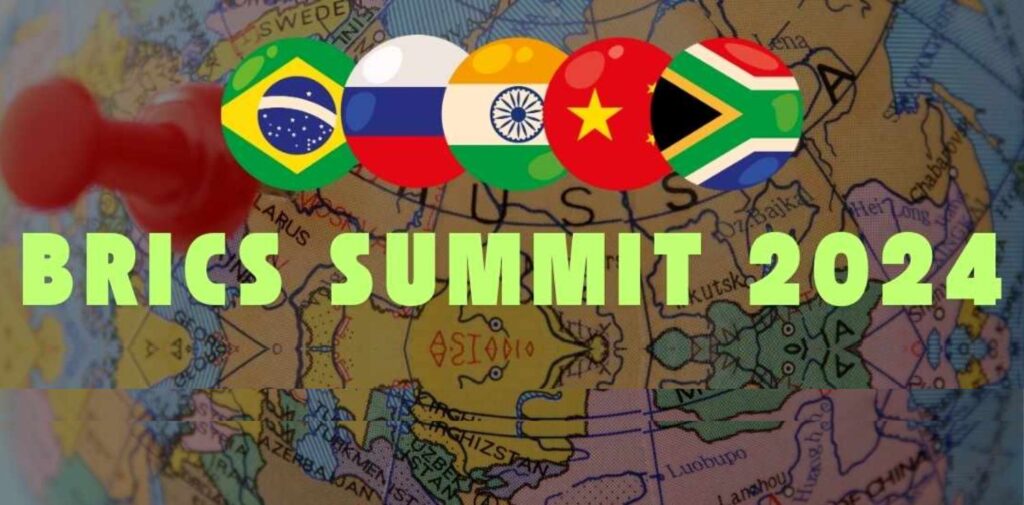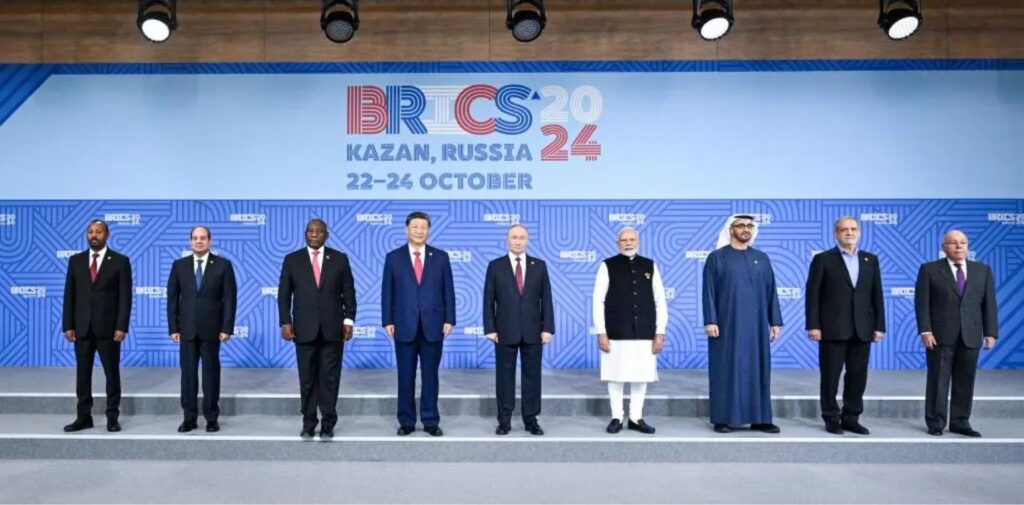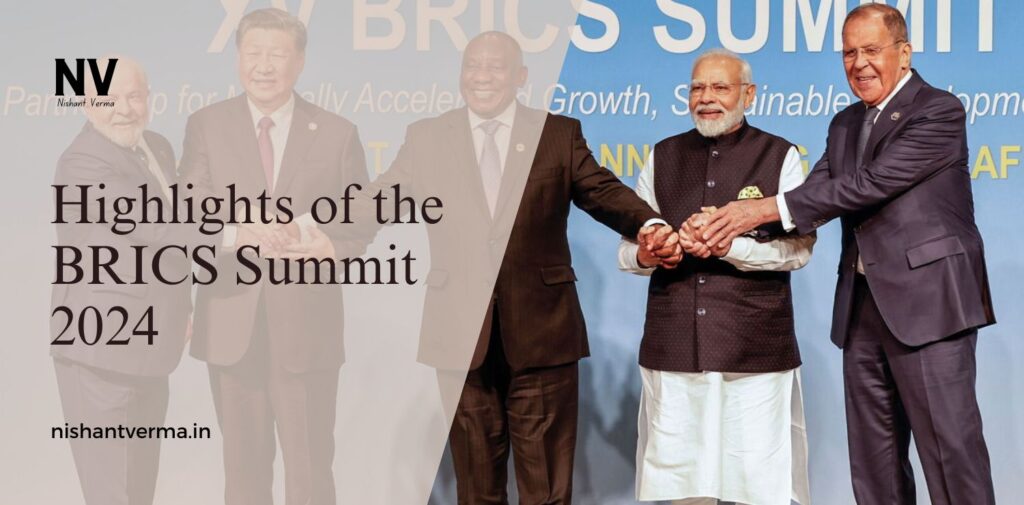The BRICS Summit 2024, held in Johannesburg, South Africa, was a significant gathering of leaders from Brazil, Russia, India, China, and South Africa. This year’s summit focused on enhancing cooperation among member countries and addressing global challenges. Here are the key highlights and outcomes from the event.

Purpose of the Summit
The BRICS Summit is a platform for member nations to discuss economic, political, and social issues. This year, leaders emphasized the importance of working together to promote development and tackle challenges like climate change, security, and economic stability.
Expanded Membership:
One of the summit’s most exciting outcomes was the announcement of new members. Including countries like Argentina, Egypt, and Iran in BRICS highlights the bloc’s growing influence and commitment to representing emerging economies. This expansion aims to enhance cooperation and strengthen the global voice of the BRICS nations.
Focus on Economic Collaboration:
Leaders discussed ways to boost trade and investment among member countries. They stressed the importance of reducing reliance on Western economies and exploring alternative markets. By enhancing economic ties, BRICS nations hope to create a more balanced global economy.
- Trade Agreements: A key highlight was the announcement of new trade agreements aimed at simplifying trade processes between member countries. This will facilitate easier exchange of goods and services, ultimately benefiting all member states.
- Currency Cooperation: Another important topic was the exploration of using local currencies in trade. This move aims to reduce dependence on the US dollar, making trade more efficient and less vulnerable to fluctuations in the dollar’s value.
Commitment to Sustainable Development
Sustainability was a major theme throughout the summit. Leaders recognized the urgent need to address climate change and promote environmentally friendly practices.
- Green Initiatives: BRICS countries committed to various green initiatives, including investments in renewable energy and sustainable agriculture. These initiatives aim to mitigate the effects of climate change and promote a more sustainable future.
- Support for Developing Nations: Leaders also emphasized the need to support developing nations in their quest for sustainable development. By sharing resources and expertise, BRICS nations can help these countries achieve their sustainability goals.

Security Cooperation
Security was a significant concern discussed during the summit. Leaders highlighted the importance of cooperation in combating terrorism and ensuring regional stability.
- Joint Military Exercises: The summit saw discussions about conducting joint military exercises among BRICS nations. This collaboration aims to enhance security and strengthen the capabilities of member states to address common threats.
- Cybersecurity: Another crucial area of focus was cybersecurity. Leaders agreed to share information and resources to combat cyber threats, which have become increasingly prevalent in today’s digital age.
Cultural Exchange and People-to-People Ties
Recognizing the importance of cultural exchange, leaders discussed initiatives to promote mutual understanding among the populations of BRICS nations.
- Educational Programs: The summit included plans for expanding educational programs that encourage student exchanges and academic collaboration. These initiatives aim to foster a sense of unity and cooperation among young people in member countries.
- Cultural Festivals: Leaders also proposed the organization of cultural festivals to celebrate the diverse cultures within BRICS. These events will provide opportunities for citizens to learn from each other and build stronger ties.
Addressing Global Challenges
The BRICS Summit provided a platform for discussing pressing global issues, including health, poverty, and inequality.
- Health Cooperation: In light of the ongoing effects of the COVID-19 pandemic, leaders agreed to enhance cooperation in health research and access to medical resources. This includes sharing information about best practices and improving healthcare systems in member countries.
- Poverty Alleviation: Leaders also emphasized the need to address poverty and inequality. Collaborative efforts to improve economic opportunities for marginalized communities were discussed as a priority moving forward.
Strengthening Global Governance
The summit highlighted the need for reform in global governance structures, such as the United Nations, to better reflect the interests of emerging economies.
- Advocacy for Representation: BRICS leaders advocated for a greater representation of developing countries in international decision-making bodies. They believe this is essential for creating a more equitable global system.
- Multilateral Cooperation: The summit reinforced the importance of multilateral cooperation to tackle global challenges. Leaders are committed to working together to find solutions that benefit all countries, not just a few.

Future Prospects
As the summit concluded, leaders expressed optimism about the future of BRICS. The commitment to collaboration and mutual support is expected to yield positive results for member nations.
- Upcoming Meetings: Plans for future meetings and collaborations were discussed, with a focus on maintaining momentum in the areas of trade, security, and sustainable development.
- Continuous Engagement: Leaders agreed on the importance of continuous engagement among BRICS nations to address evolving global challenges effectively.
Conclusion: BRICS Summit 2024
The BRICS Summit 2024 was a pivotal moment for the member nations, showcasing their commitment to working together on pressing global issues. With a focus on economic cooperation, sustainability, and security, the summit underscored the significance of emerging economies in shaping a more balanced and equitable world. As BRICS expands and strengthens its initiatives, the future looks promising for collaboration among these diverse nations.




